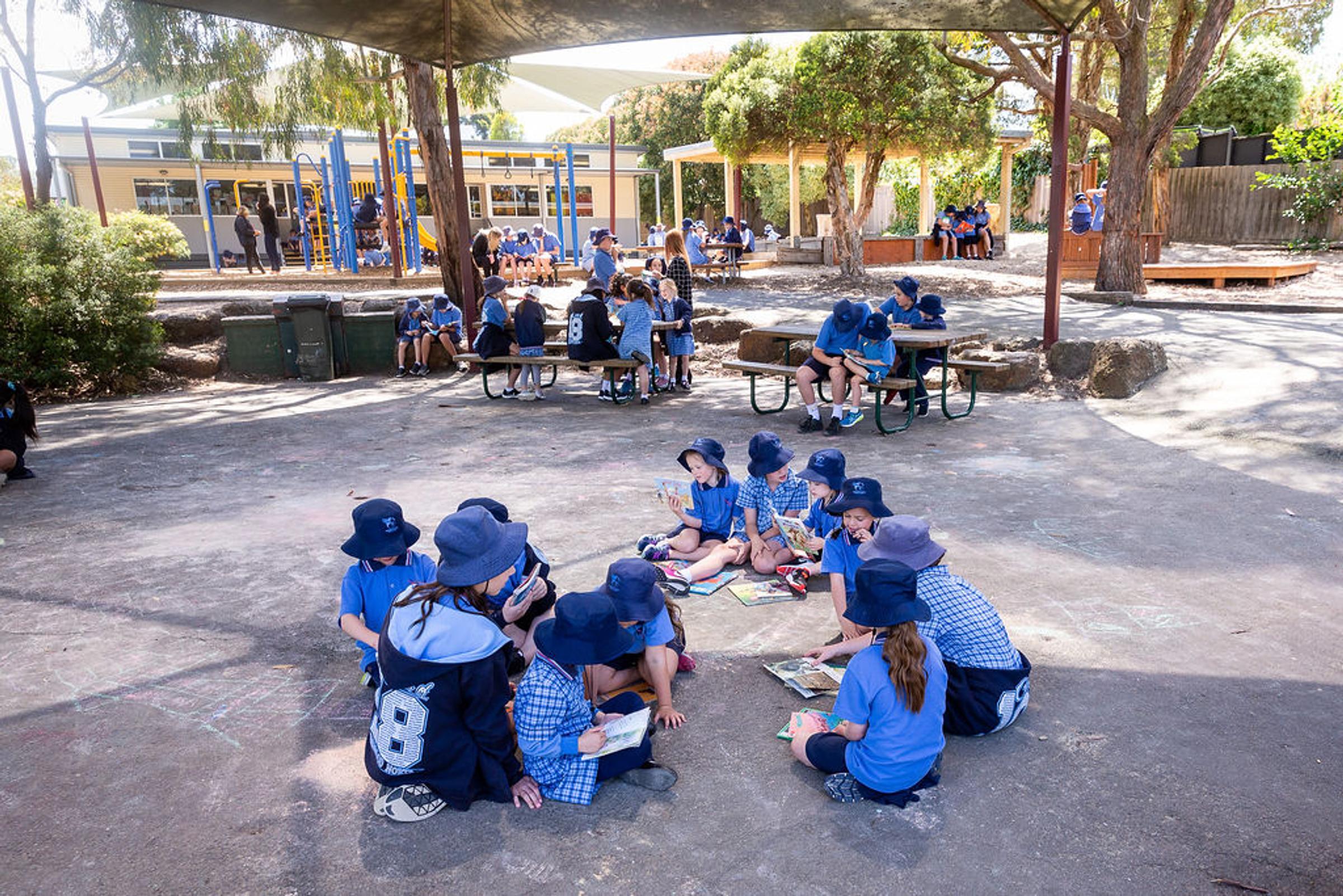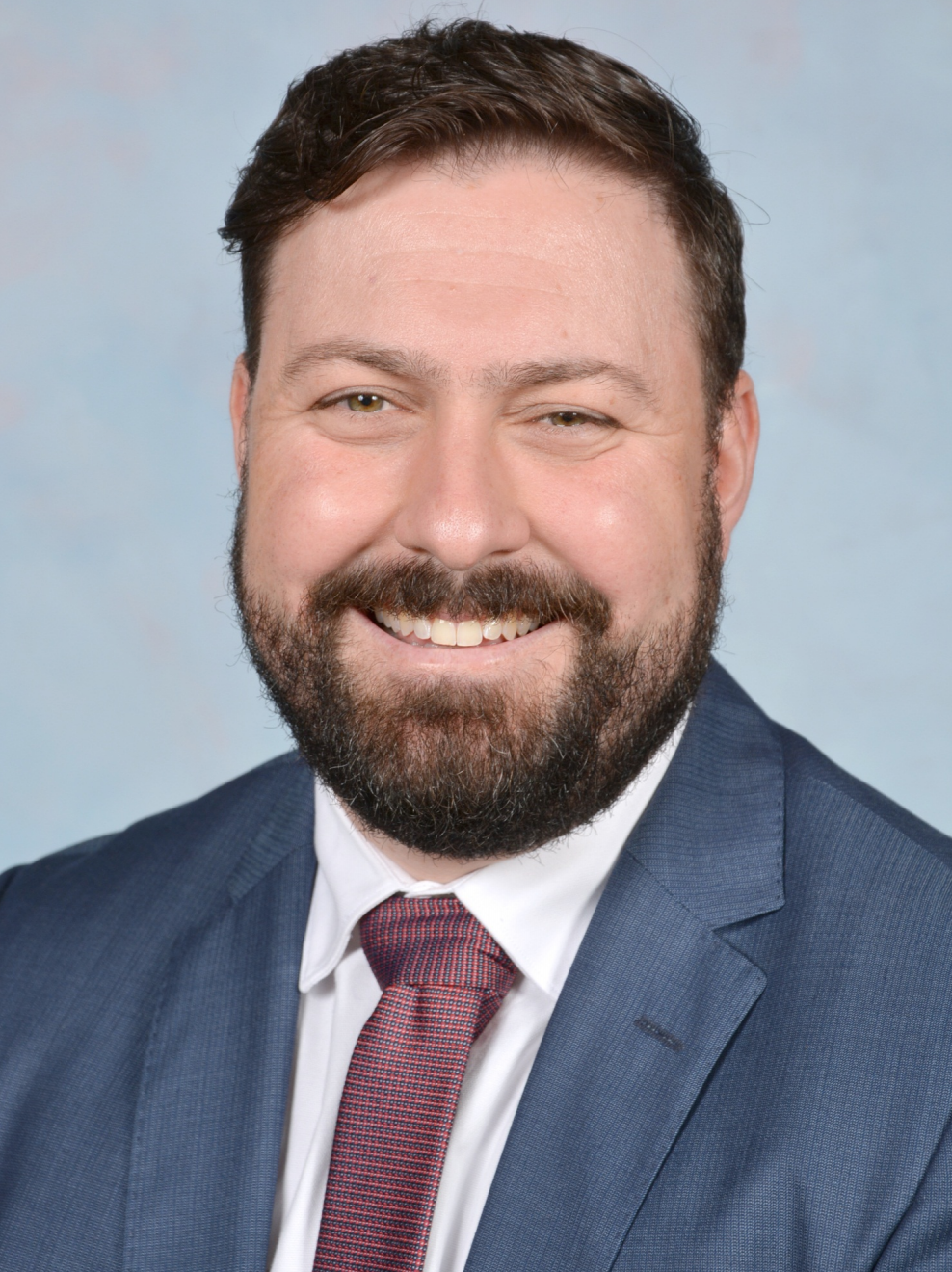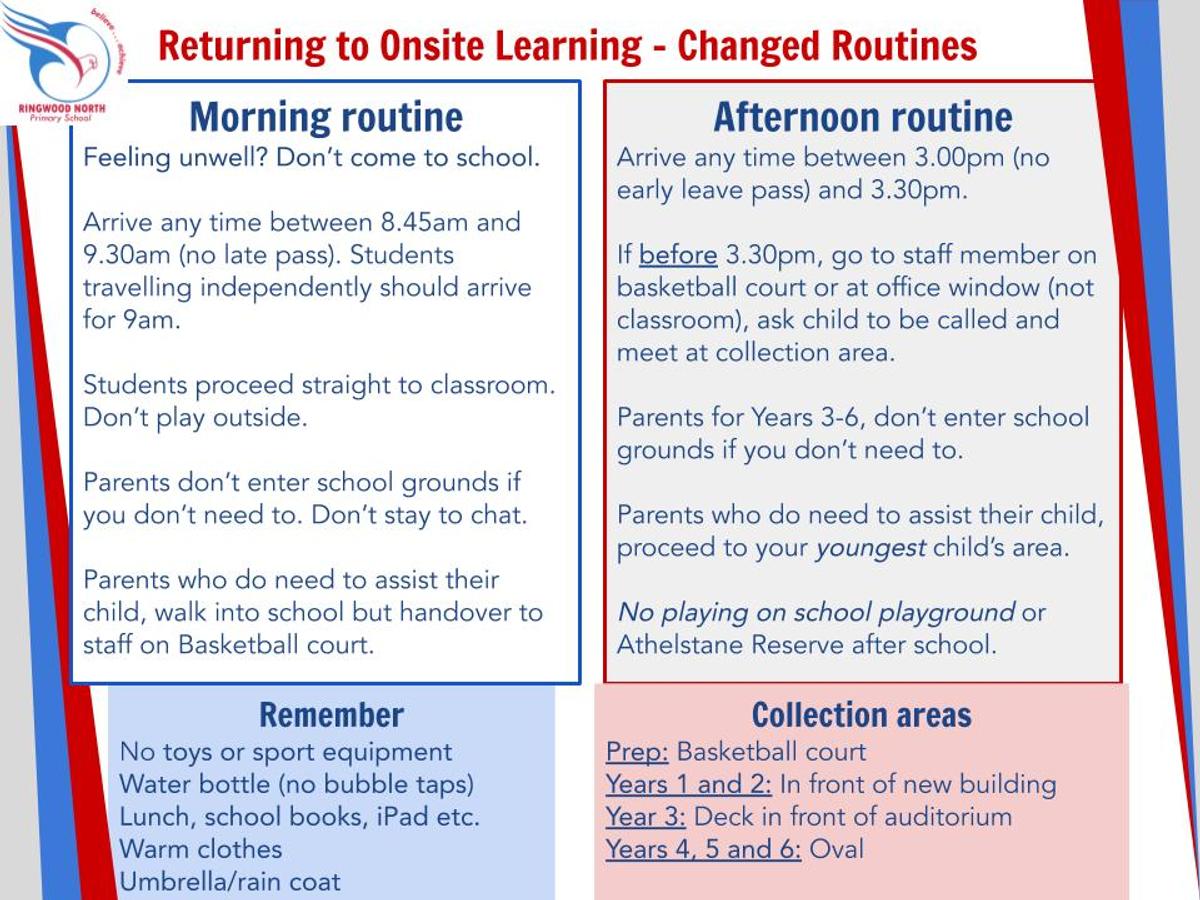From the Principal

A message from the Principal
Return to School
From Tuesday June 9 we will be back to full onsite learning at school. It has been wonderful seeing the Prep, Year 1 and Year 2 students over the last 2 weeks, streaming into the school, happy and keen to see their friends and teachers. It will be even better to have the rest of the students join them from next week.
There has been and will continue to be a period of adjustment for students. This is not like returning to school after the holidays so there will be some adjustment to routines, habits and expectations required. Some students might find their teacher a bit more firm or relaxed than their home teacher has been, whatever the case may be I'm sure they will settle back into their school routines soon enough.
A reminder about the arrangements for drop off and pick up. Drop off in the morning has been working well, students should enter the school independently where possible or 'Kiss and Go' on the basketball court where staff can assist.
For Pick Up, locate one of the staff members on the basketball court and request for your child to be sent out early to meet you. This helps to ensure there are fewer people waiting around.
Parents of students in Years 3-6, we request that you make arrangements to meet them outside the school grounds and away from the school entrance (please don't congregate at the school crossing on Oban Rd). Otherwise, meet students at the collection areas - not at the classroom.
If they have younger siblings, the older sibling can collect them and walk to meet you.
If this is not possible, the older sibling will be asked to go to the younger sibling's collection area and wait there to meet you.
Reflecting on Remote Learning
There has been a lot of chatter going on throughout schools and the media about what we can take from this period of time. In the next newsletter I will ask for feedback from parents about what worked or didn't, what you observed or realised during this time and how some of these realisations might inform what we do back at school. Students and staff will be engaging in this reflection over the next two weeks, too, so we can learn from this experience. If you haven't had a chance to pause and reflect on this unique period of time (particularly in relation to your child's schooling), I encourage you to take a moment and make a few notes. As an education system there is a lot of sharing and discussion about how this might influence the shape and style of education moving forward and it will be important to hear from a parent's perspective what we can learn from Term 2 2020.
As a school leader, I feel there are some things that have been cemented in my mind about primary school education, foremost among them is the extraordinary value of physical proximity - the shared energy and warmth of engaging in challenge together is just so difficult to replicate virtually. I have also come to appreciate even more the art of teaching and the intense requirements of teaching a child, making constant adjustments and re-configuring tasks to increase or soften challenge where required. We also observed some extraordinary self-management by students, not always from the students we were expecting to see it from, something that teachers will be able to take into consideration and learn from moving forward.
The teachers at RNPS have worked very hard over the last couple of months, been on a steep learning curve and struggled with the same challenges that most of society has faced with remote learning, isolation, anxiety etc. But I couldn't be more proud or thankful for their efforts. Again, I would like to also thank the parent community in general for the overwhelmingly positive and grateful response from you towards the school and teachers - your kind words and messages have been a great lift for many of us.
Term 2 Big Idea: Reducing Inequality
This term in Challenge Based Learning students from all years have been exploring the idea of inequality and being challenged to consider how society might be able to reduce the levels of inequality some people experience. It is unfortunate that such an important topic has been disrupted so significantly by the remote learning program. In normal circumstances these topics rely heavily on in-class discussion, with teachers using student questions as a way to gauge what concepts they are struggling with or understand sufficiently. Often, the range of prior knowledge that students bring with them, help to determine how far and how deep the conversations and learning will go that year with that cohort.
Looking at the latest extraordinary offering of 2020, with the sad death of George Floyd in the US and the resulting protests worldwide, it strikes me as being even more crucial that we, as a society, find a way to improve our understanding and empathy for people who are subject to ongoing, historical discrimination. In Australia, it is tragic how poor our knowledge of Aboriginal and Torres Strait Islander culture is and how poorly we have managed the inequality of our nation's first people.
I know personally that the education I received in both primary and secondary school about Aboriginal issues was pitiful, and it wasn't until I was a teacher preparing to teach units related to European settlement, colonisation and Aboriginal culture that I learnt anything of substance. I assume that many parents will have experienced the same thing and have very limited knowledge with which to talk with your children about Aboriginal issues. When this happens we tend to revert to the safety of inoffensive topics: food, fashion and dance. However, sadly, this means that our conversations never stray too far from the comfort of reading a dreamtime book or talking about bush tucker. And this level of surface knowledge is not enough for people to develop empathy and passion for the circumstances of Australia's indigenous people.
We know in education that up to 50% of student outcomes is directly dependent on the home. For instance, a student's success in English can often be predicted by the number of books in a household. So, if we have multiple generations of adults who have never really been taught about Aboriginal issues, we can expect that our children will leave school in a similar situation. We can't allow this to continue.
One way we can work together to improve this situation is for parents to improve their own knowledge and understanding. I think a really good starting point is learning about the local Wurundjeri people. The SBS TV series, First Australians (https://bit.ly/371HDmt), is a few years old now but is an excellent starting point for gaining a better understanding of the history and stories of Australian Aboriginals. Episode 3 looks in-depth at Victoria and in particular Simon Wonga, William Barack and the Wurundjeri people. Much of the story of the Wurundjeri at this period of time centres around the local area: Warrandyte, Lilydale and surrounds, and is a fascinating and saddening tale that all Victorians should know.
The National Gallery at Federation Square also has in its free gallery downstairs dozens of items from William Barack and his record of Wurundjeri life post-colonisation, including art works, letters, tools and more.
As a school we have a duty to endeavour to continue educating our future generations about inequalities that exist and to try to create the conditions for our children to correct the wrongs of past generations. We have some plans moving forward that had originally been scheduled for this term to support this, with funding for a flagpole to fly the Aboriginal flag and a connection with a local group to perform a smoking ceremony for our community (when possible).
As parents, we have the same responsibility. It can be confronting and daunting to know where to start but all of us have a responsibility to ensure we are not wilfully ignorant. We may have been let down by the education we received but there are resources out there to fill some of these gaps. I encourage everyone at this time to make an effort, however small, if not for yourself but to ensure our children do not repeat the same mistakes of our past.


